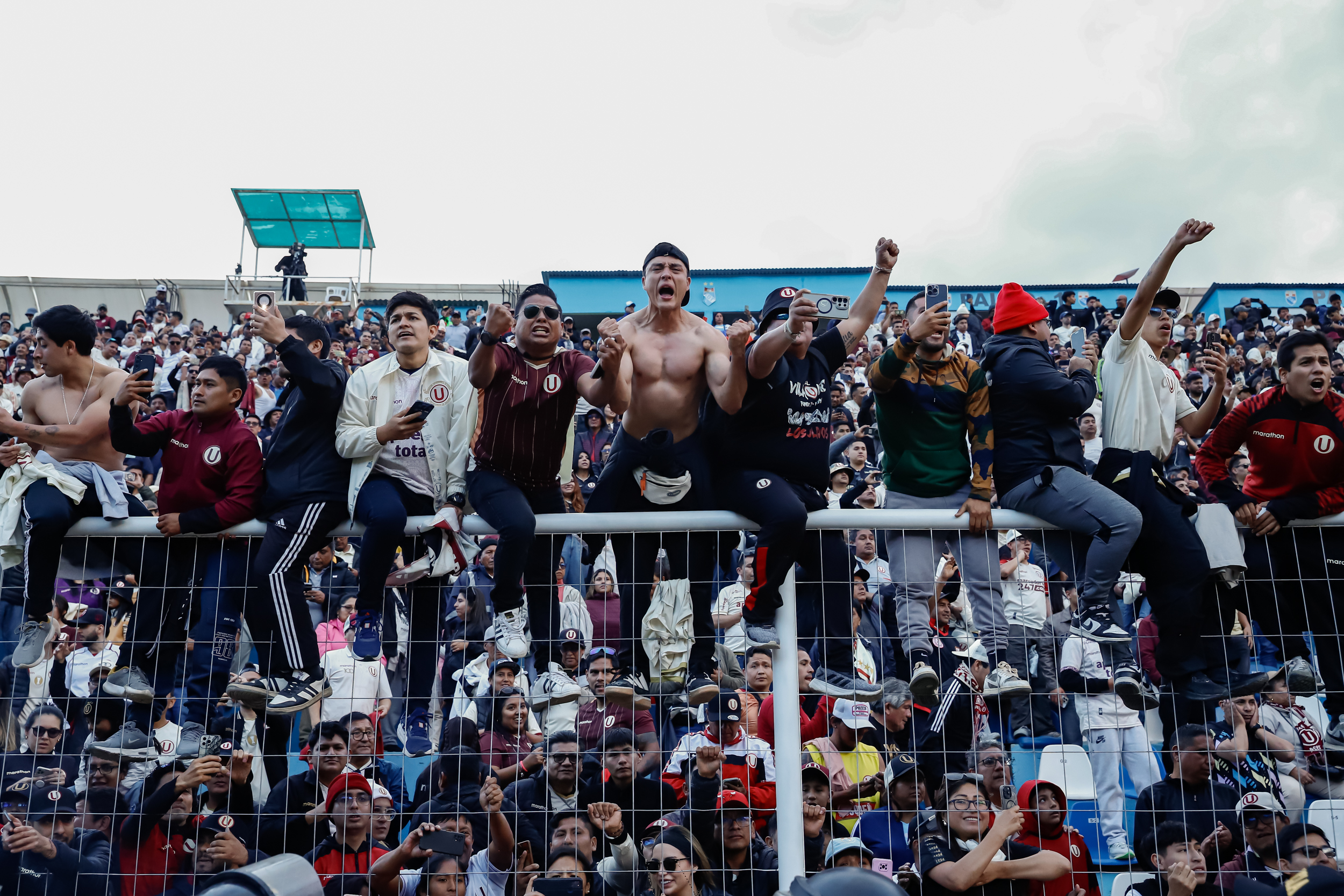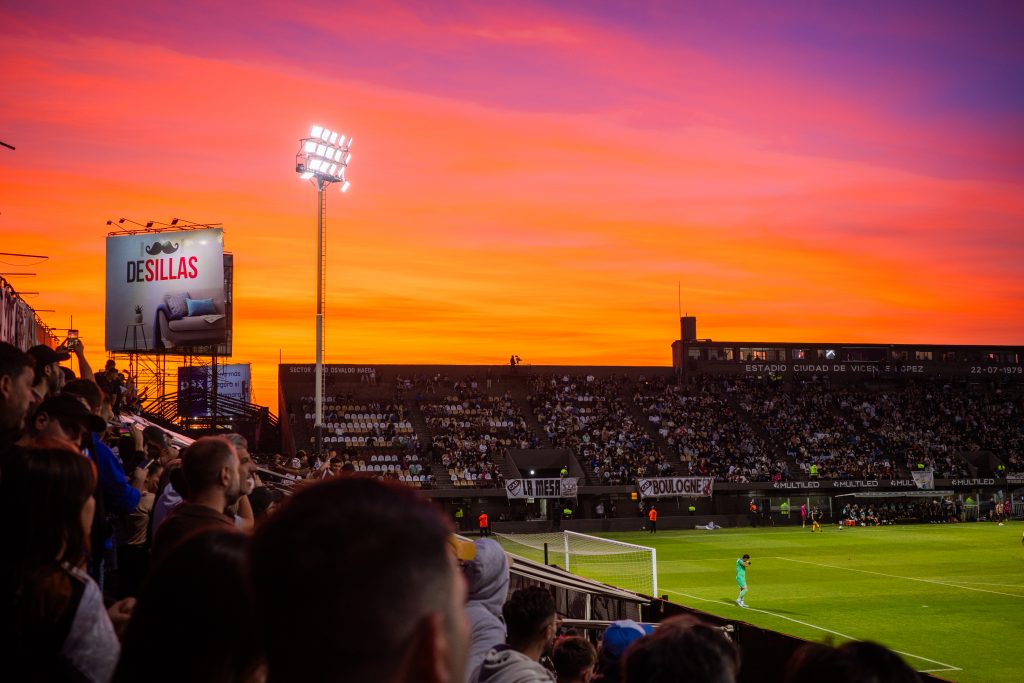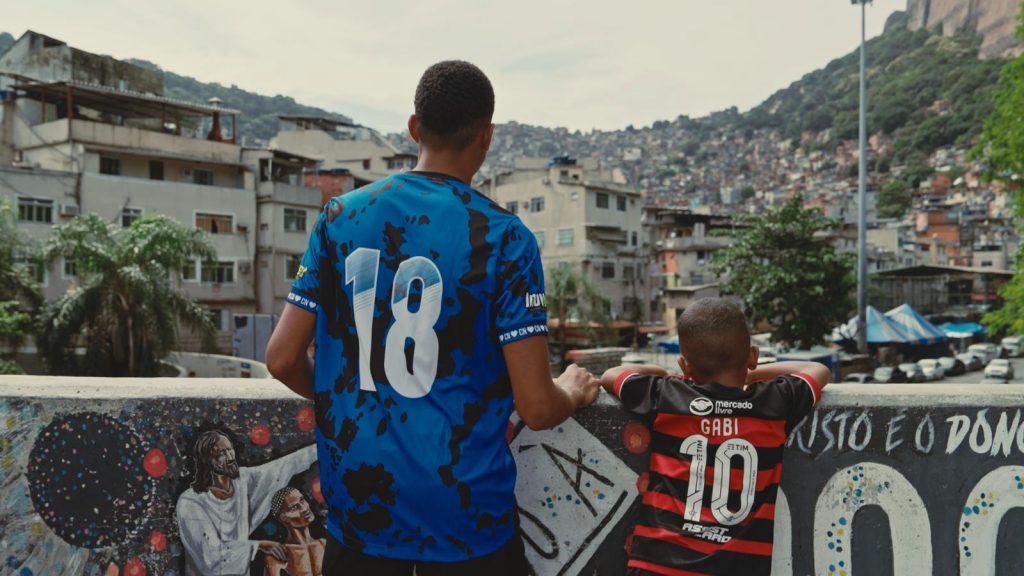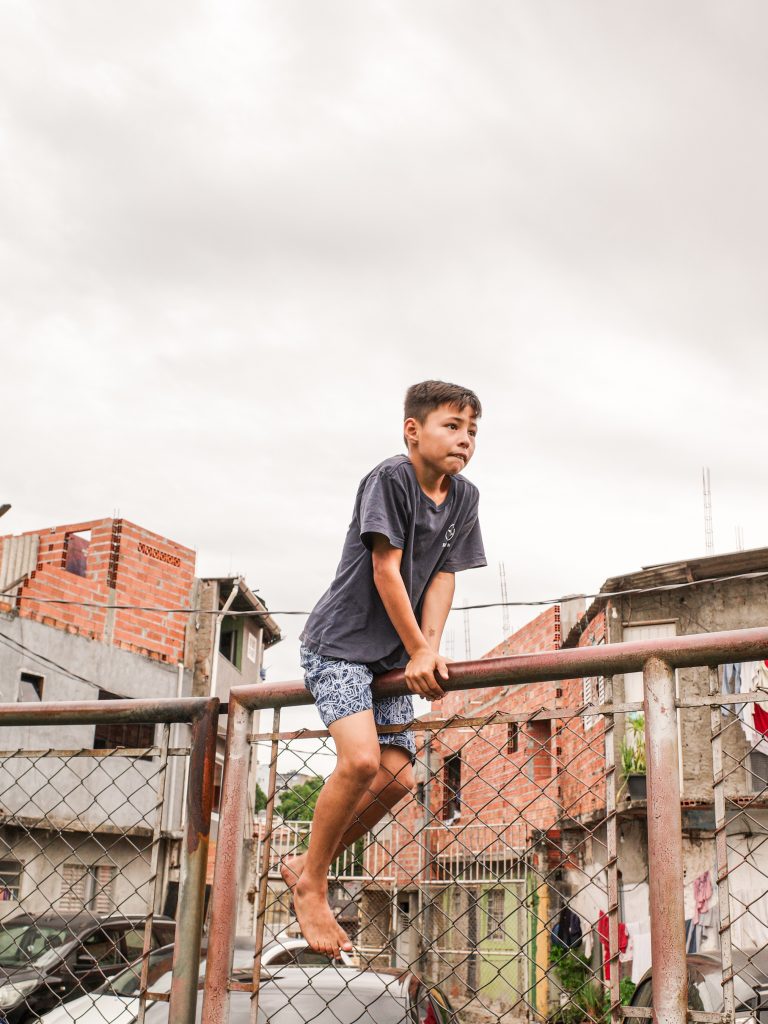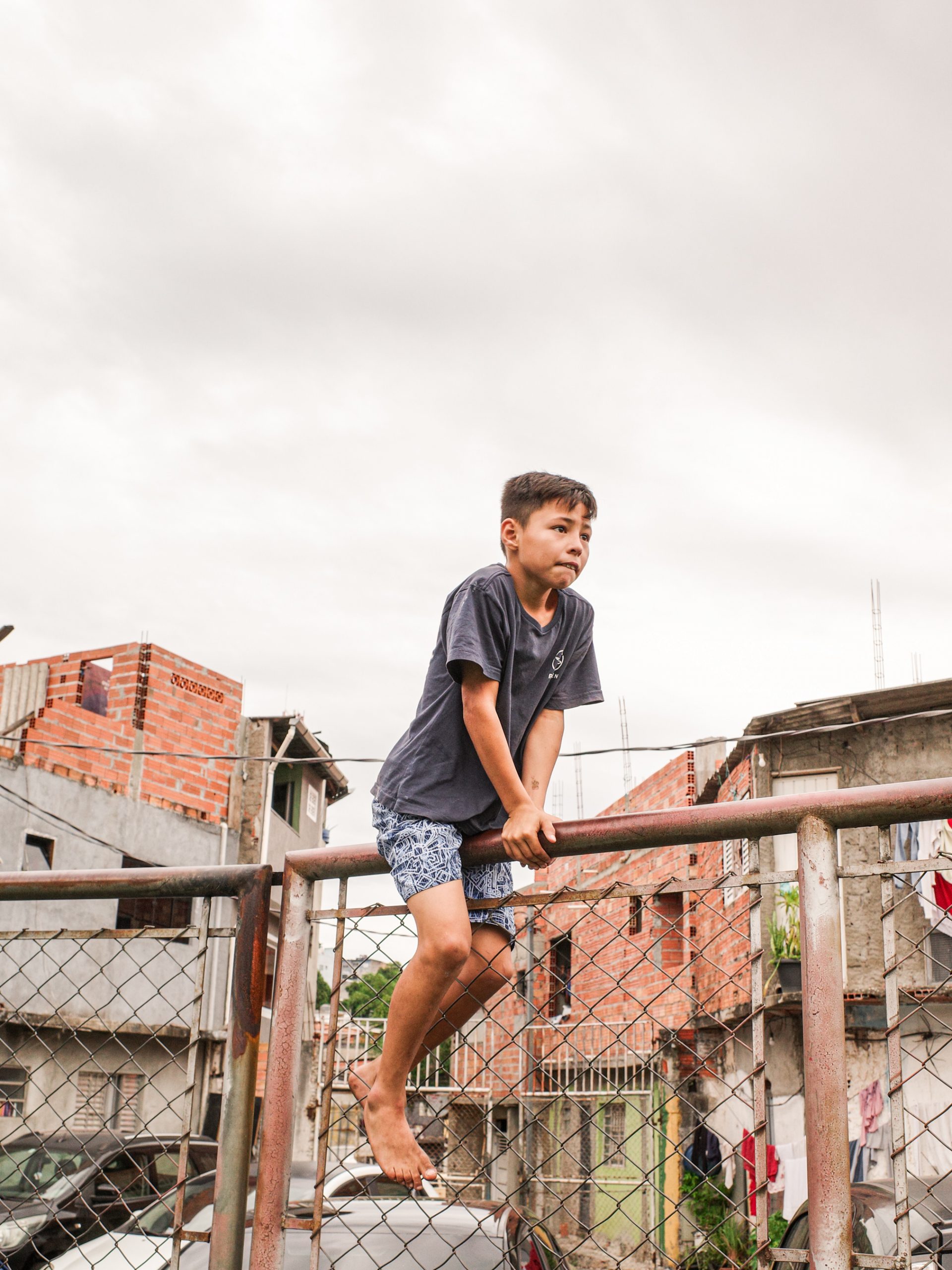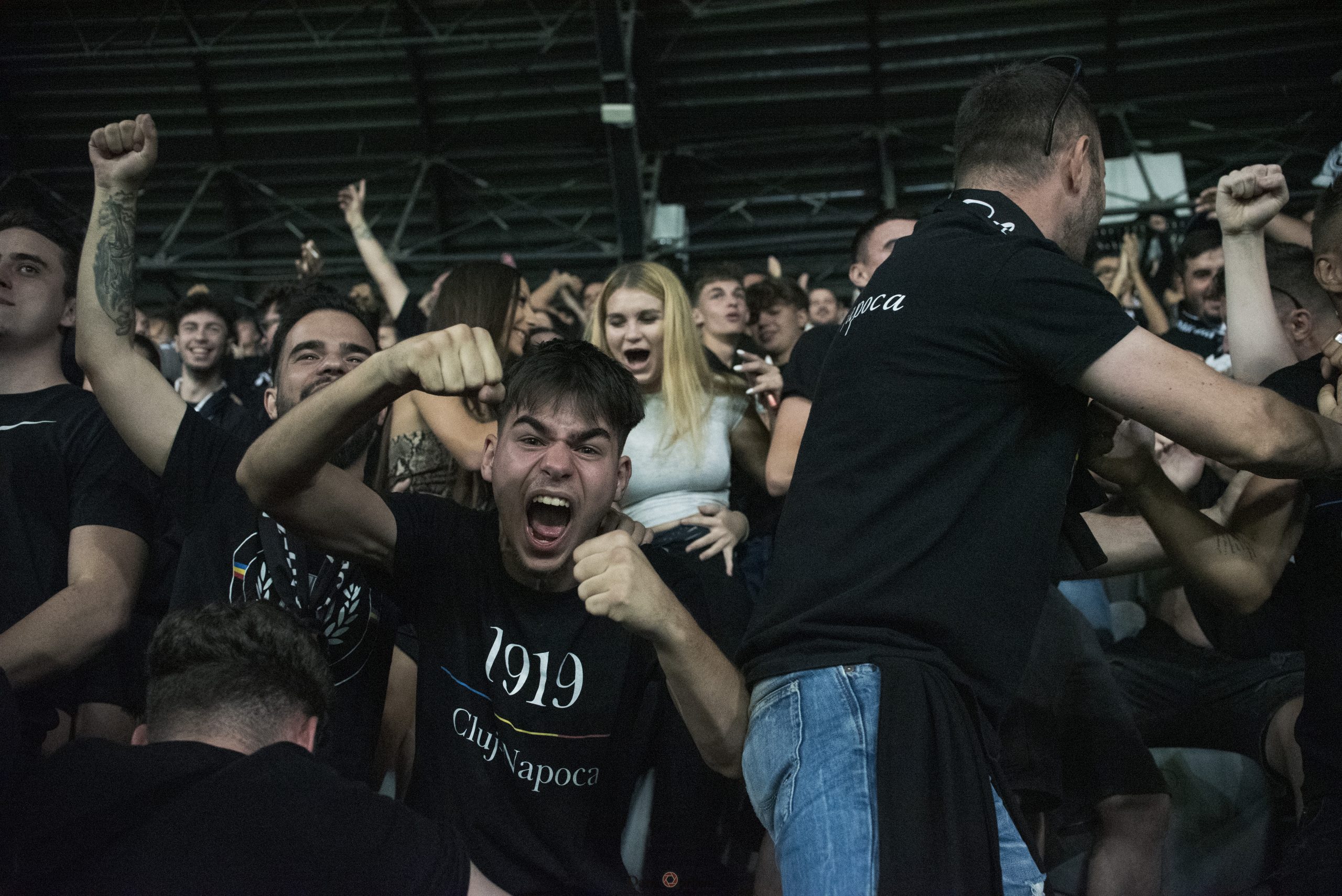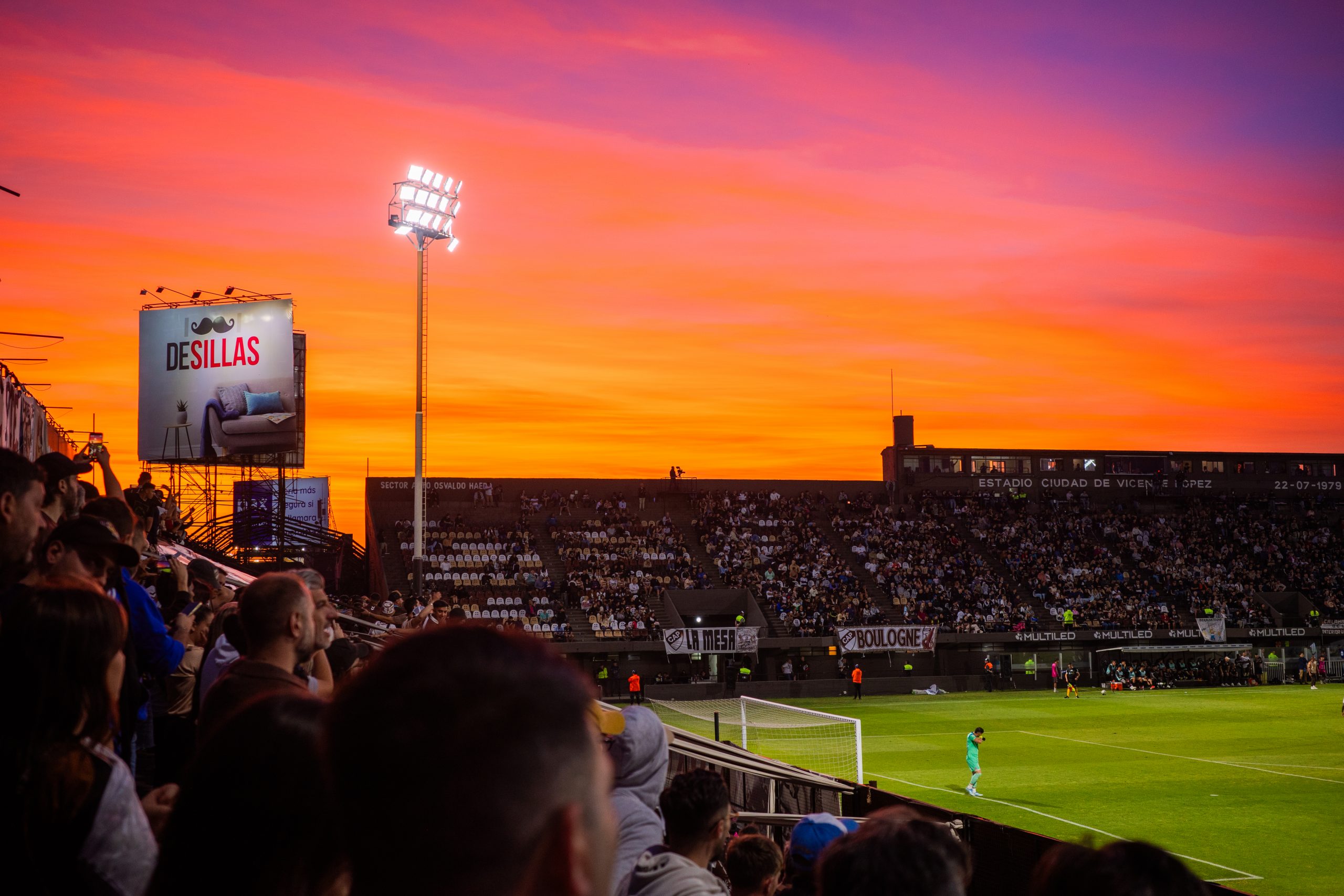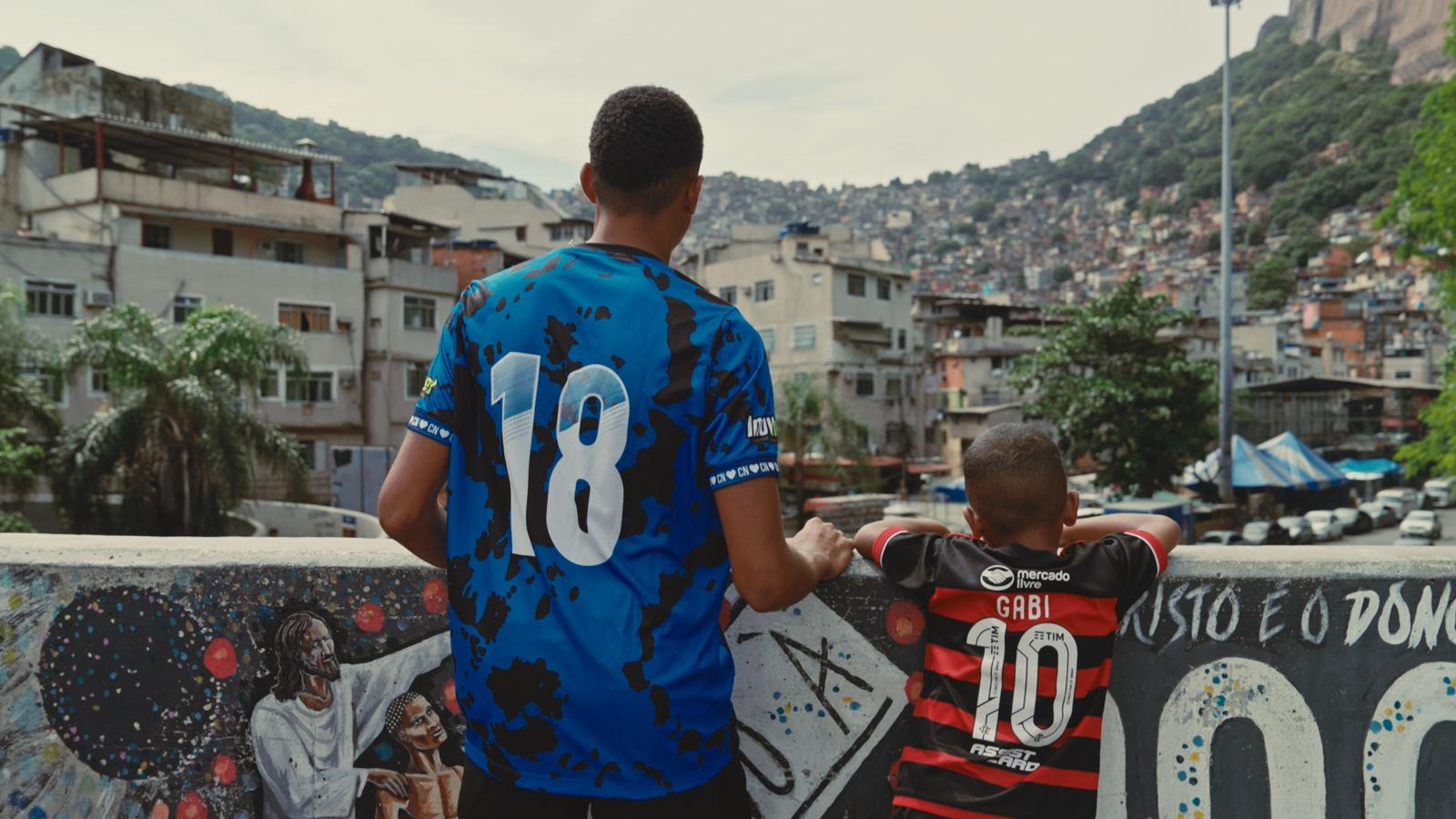All images by Sebastián Blanco Salazar
Over coffee in Lima, photographer Sebastián Blanco Salazar reflects on a year spent behind the lens with Universitario de Deportes—their three-peat triumph, the fans who never stop singing, and the spirit that turns the Monumental into a living, breathing force.
We meet in a small café in Lima, where the noise of the city slips in every time the door clicks open. Sebastián Blanco Salazar sits across from me, camera bag on the floor, still smelling faintly of last night’s smoke, sweat, and fireworks. He’s been following Universitario de Deportes—La U—throughout their season: at home, away, and through that historic night against ADT when they sealed a place in Peruvian football history.


He smiles when I ask him the most basic question, the one that every foreigner and every Peruvian outside the capital eventually asks:
What makes La U so unique?
What makes this club different?
Sebastián leans back, twisting the coffee cup between his fingers.
“Everyone says their club is special,” he says. “But La U… it’s something else. Its identity. It’s how you learn to fight even when everything is against you. It’s the idea that you battle for every ball until the last minute. And if there’s still one second left, well… you fight for that second too.”
He pauses, like he’s trying to find a simpler way to explain a whole universe of feeling.
“That’s why the phrase la garra crema exists. It’s not marketing. It’s life.”

The Club That Is More Than a Club
Universitario, he tells me, is carried by its people. Everywhere the team travels, fans pack the stadiums—entire families, generations wrapped in cream-colored shirts. But nothing compares to the Monumental.
“The Monumental is a fortress,” he says. “More than 60,000 people. On match days, it’s a volcano. It’s impossible to hear anything except the fans.”
He laughs. “I’ve been next to the pitch, trying to take photos, and I can feel the ground vibrating.”

The north stand—the powerful Trinchera Norte—sets the rhythm of the entire place. But Sebastián insists that the east stand, the older and more traditional supporter section, still holds its own. “When both sing together… forget it. You can’t think. You just feel.”
He remembers the Copa Libertadores match against Palmeiras. La U were losing badly, and yet—he mimics thousands of voices rising—they didn’t stop singing for a single moment.
“That’s the U,” he says softly. “Even in defeat, they don’t abandon the team.”

A Season on the Road
Sebastián was there for all of it: home games, late nights editing photos, and the long trip away to face ADT—the match that sealed the three-peat. He tells it quietly, like someone replaying a dream he can still feel on his skin.
“It was wonderful,” he says, but his eyes say more. “This was history. Their second three-peat. No team in Peru has won three consecutive titles twice.”


He shakes his head at the thought. “Do you understand what that means? For the club? For the country?”
But the moment he remembers most wasn’t the goals, or the celebrations, or the final whistle. It was a father and his seven-year-old son in the Monumental, days before.
“He told me he wanted his son to see what he saw when he was little. The team he loved, celebrating a third championship.” Sebastián, smiles. “That boy… he told me that if La U won, he’d be happy for the rest of his life.”
He stirs his coffee, watching the swirl as though it’s the stadium crowd.
“That joy—that shared joy between generations—how do you photograph that?” he asks. “How do you capture something you feel more than you see?”
He tries anyway. He always tries.



The Night Lima Shook
The night at Monumental when La U were presented with the title, it felt like a volcano was erupting. The noise was incredible. Tears, chants, strangers embracing like lifelong friends.
“It was indescribable,” Sebastián says. “Young fans, old fans, grandparents. People who had waited decades. People who had never known anything except the U winning.”
What he remembers most is the sound—wave after wave of it, rolling down from all four stands, lifting the players off the pitch.
“It felt like the stadium would burst and that the whole of Lima could hear.”
He laughs. “Maybe it did. Maybe it’s still in the air somewhere.”

Why It Matters
Sebastián gathers his things as our coffee cups sit empty. Outside, Lima’s afternoon heat presses against the windows. Before he leaves, I ask him why he thinks this season mattered so much, beyond trophies and statistics.
He doesn’t hesitate.
“Because football is ninety minutes,” he says. “But the feeling—what it gives people—that lasts much longer. It passes from father to son, from generation to generation. That’s why La U is La U.”
He stands, slinging the camera over his shoulder.
“And this year,” he adds with a grin, “they made history. Again.”
He taps the table twice, as if sealing the conversation like a photograph frozen in time.
Then he steps into the noise of the city—another match, another story, always waiting.

All our thanks to Sebastián Blanco Salazar

